Cruelty Free Beauty
- 4 signs you have low iron levels
- Zero Waste Beauty: Adopt a green routine with these sustainable products
- This eco-friendly beauty box is packed with refillable multi-taskers
- “I find myself using it even when I don’t need to!”
- Arctic-inspired natural skincare brand launches in the UK
- Green People launches beauty balm packaged in 100% biodegradable pot
- Lush launches same-day delivery service for its iconic handmade cosmetics
- “This cruelty-free tanning water gave me the confidence boost I needed”
- rho launches sustainable loungewear that gives back
- Rose & Caramel Raises Awareness For Women’s Self-Esteem & Mental Health With ‘I TAN FOR ME’ Campaign
- Couple launches entirely plant-based and refillable deodorant on Kickstarter
- View all
Eco Living
- Simple Hacks to Cut Your Food Waste with Gino D’Acampo
- Five Easy Ways to Reduce Food Waste
- Eat these foods to boost your mood
- Upgrade Your Cheese Toastie
- Have a healthy Christmas with these festive food swaps
- Omega-3 Health Benefits
- 5 minutes with Max La Manna
- A nutritionist’s guide to eating for healthy joints
- Easy ways to achieve your health goals
- Discover the benefits of raisins on a vegetarian diet
- Improve your gut health with California Raisins
- View all
Vegan Recipes
- Quorn Vegan Hot & Spicy Burger with Pink Slaw
- Tomato and Pumpkin Soup
- Pea and elderflower cocktail
- Matcha Coconut Ice Cream
- Vegan Lemon Bars
- Mango Salad with Thai Dressing
- Garden Gimlet
- Tofu & Green Beans Teriyaki
- Cornflakes Bombay
- Rainbow Pickle
- Soba noodles with kale and collards
- View all
Popular recipes
- Spinach and ricotta quiche vegetarian recipe
- Cheats mushroom and spinach lasagne vegetarian recipe
- Lentil bolognese vegetarian recipe
- Creamy mushroom stroganoff vegetarian recipe
- Malaysian Rendang curry vegetarian recipe
- Feta, Butternut Squash, Caramelised Onion and Cashew Nut Wellingtons
News
- This new vegan pie is all about sharing
- MOVING MOUNTAINS LAUNCHES PLANT-BASED MEATBALLS AND MINCE
- How you can help with the Amazon wildfires
- Lewis Hamilton Launches Plant-Based Burger Chain
- Jammie Dodgers secures vegan status with 100% plant-based recipe
- This reusable bag is made entirely out of recycled plastic
- Bamigo’s bamboo clothing arrives in the UK
- Oddbox is delivering its fruit and veg boxes again
- 3 new vegan launches we’re excited about this week
- British Airways commits to removing 700 tonnes of single-use plastic from flights in 2020
- Sustainable beauty brand launches refillable hand sanitiser dispenser
- View all
10 easy ways to make your summer more sustainable
It’s easy to rack up the impact, but a few simple swaps will make this your greenest summer ever!
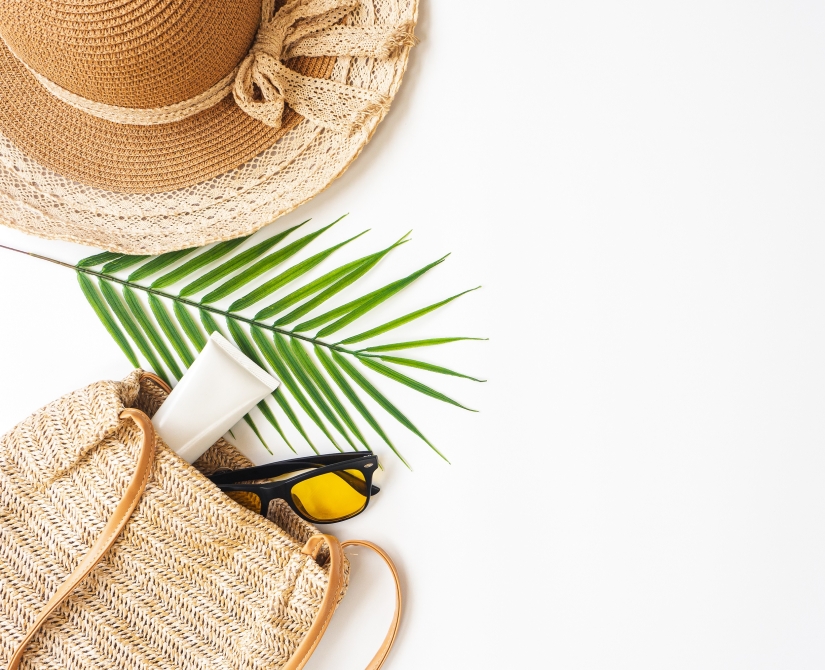
1...AT THE BARBIE
“If the sunny weather has inspired you to barbecue, try to resist going for disposable ones,” says Jenny Bates, clean air campaigner at Friends of the Earth. “Often fuelled by coal, they’re also smothered in single-use plastic. Burning coal releases clouds of harmful pollutants into the air, and while gas is certainly less harmful from an air pollution perspective, it's unfortunately still a fossil fuel. Go for an outdoor electric one, which if powered by renewable energy, is really eco!” Weber's Q 1400 Electric Barbecue (£274.99, wowbbq.co.uk) is a great urban option.
2...ON YOUR FACE
Did you know our passion for a bronzed look could be impacting the lives of vulnerable children? Child labour is common in the dangerous mica mines of India: sources of the sparkle for many an eyeshadow and highlighter. Last year, Lush ditched natural mica completely, but it's still common in mineral make-ups. “Child labour is probably involved in the making of many products,” says Jakub Sobik of Anti-Slavery International, “but it's very hard to establish which ones. We don't recommend a simple boycott – it could impact legitimate businesses that rely on trade – but we urge people to press their favourite brands to be more transparent.” Go for Green People's Mineral Powder Blush (£20, greenpeople.co.uk) made with mica sourced ethically from Malaysia.
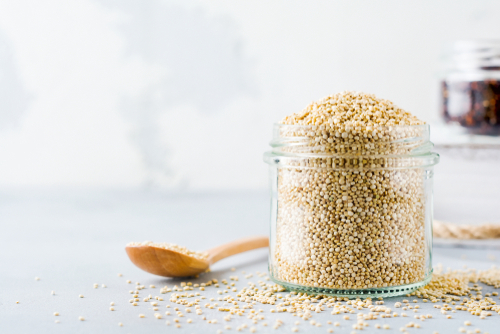
3...IN THE KITCHEN
Our appetite for protein-rich salads spikes in summer, impacting lives across the globe – something to bear in mind when searching for your grains. “While the appetite for quinoa has improved living standards for producers, to meet increased demand, many quinoa farmers have also expanded cultivation of the crop beyond their traditional high-elevation plots,” says the Fairtrade Foundation. “This has implications for the long-term sustainability of quinoa farming. Fairtrade aims to empower quinoa farmers to meet the challenges they face and to improve their living conditions. You can help by choosing Fairtrade quinoa and other produce when you shop.”
4...ON HOLIDAY
“Aviation is a huge contributor of carbon emissions,” says Emi Murphy, climate campaigner at Friends of the Earth. “Even without the planned third runway, Heathrow Airport is the UK’s biggest single source of carbon emissions.” So, is it time to join the no-fly movement? “Have a think about ditching air travel this year,” recommends Emi. “From mountains in Spain to valleys in France, there are some truly beautiful landscapes overseas that you can reach without having to board a plane.”
5...AT THE FESTIVAL
There’s no doubt that festivals are going greener – witness Glastonbury's ban on the sale of single-use plastic bottles – but with cheap rain ponchos, wet-wipe showers and lashings of glitter all part of the fun, it's easy to clock up a mountain of non-degradable waste. As ever, partying responsibly involves a little bit of forward-planning. Pack damp cotton flannels in a sealable lunchbox, and pre-load with dazzling biodegradable glitter from ecostardust.com. You can even book a pre-pitched tent at camplight.co.uk – save spontaneity for the dance floor!
6...AT THE COFFEE SHOP
Iced latte season is upon us, so what's your milk of choice? “Of all the plant milks, almond uses the most water, and most almonds come from California which is suffering from a long drought,” says Sus Davy, plant-based blogger and owner of Cascara vegan coffee shop in Bath. “So, look for almonds from Europe – they have less air miles, too.” At home, try The Mighty Society's Pea Mylk (£1.50 per litre at sainsburys.co.uk) made using 100 times less water than almond milk.
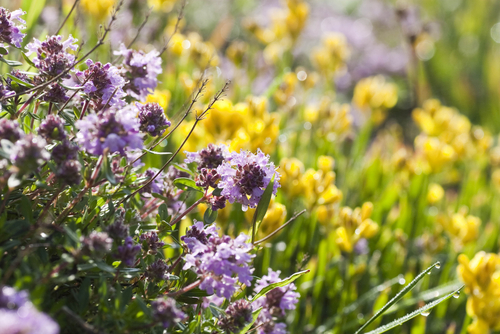
7 ...IN THE GARDEN
A freshly-weeded border is a thing of great beauty, but is it time for a more wildlife-friendly look? “By allowing so-called weeds such as dandelions to grow in your garden, you provide food for pollinators like bees,” says Sandra Bell, nature campaigner at Friends of the Earth. “You can also help animals such as hedgehogs by creating log piles and ensuring your fence has gaps to allow animals to move about more easily.”
8...AT THE CLOTHING AISLE
When heatwaves strike, it's tempting to throw a few cheap maxi dresses and jumpsuits in the trolley during your big shop, but beware. According to waste campaigners WRAP, each new item will seriously contribute to your carbon footprint. Scour charity shops for alternatives, and you'll be saving emissions equivalent to a 6,000-mile car journey, as well as supporting a good cause.
9 ...IN THE VEG PLOT
“Peat is the foundation of a whole series of habitats for rare plants and animals,” says Dr Jillian Labadz, associate professor at Nottingham Trent University. “Prince Charles once called British peatlands 'our rainforests'. It also stores a lot of carbon, which can be released when it's dug up.” According to Jill, peat grows at about 1mm every year, but 20cm per year are removed from the surface of bogs to make the mixes found in most grow bags. The answer is to always buy peat-free: Verve Peat-free Multipurpose Compost (£4.17 for 50 litres, diy.com) is a sustainable substrate that's unusually rich in nutrients, so your garden won't be missing out this season.
10...IN THE SUN
Stocking your handbag, kids' school bags and holiday suitcases with sufficient suncream clocks up a LOT of oil-derived plastic bottles. Try Green People's suncare range, now in plant-derived packaging made from carbon-negative sugar cane – try Scent Free Sun Lotion SPF 30, £16 for 100ml from greenpeople.co.uk.
Looking for more inspiration? Check out our Tried-And-Tested Guide To Fairtrade Shopping
More from Vegetarian blog
_825_589_int.JPG)
The TV chef joins forces with a charity to get us buying loose fruit and veg to reduce waste
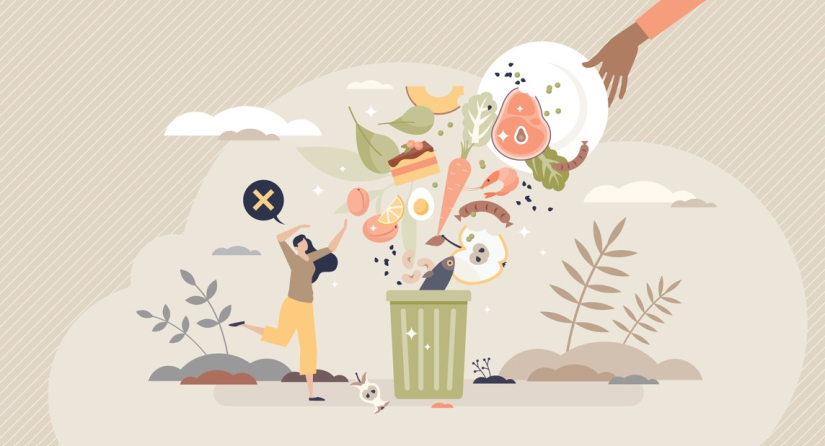
Tried and tested by the Veggie team
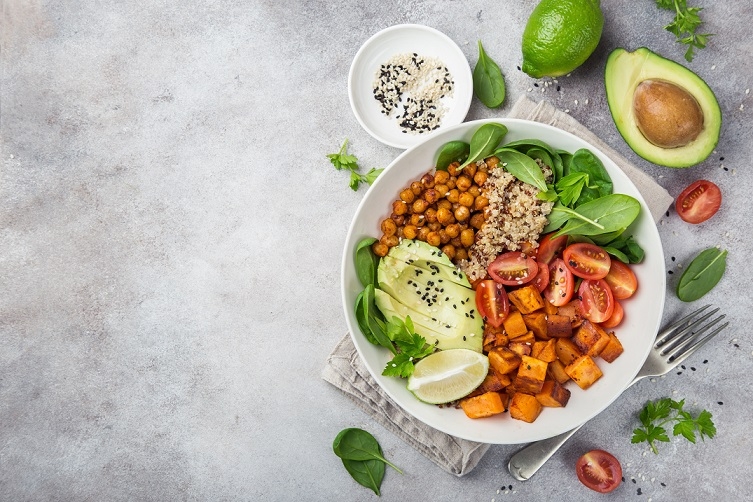
4 ingredients that will lift your spirits
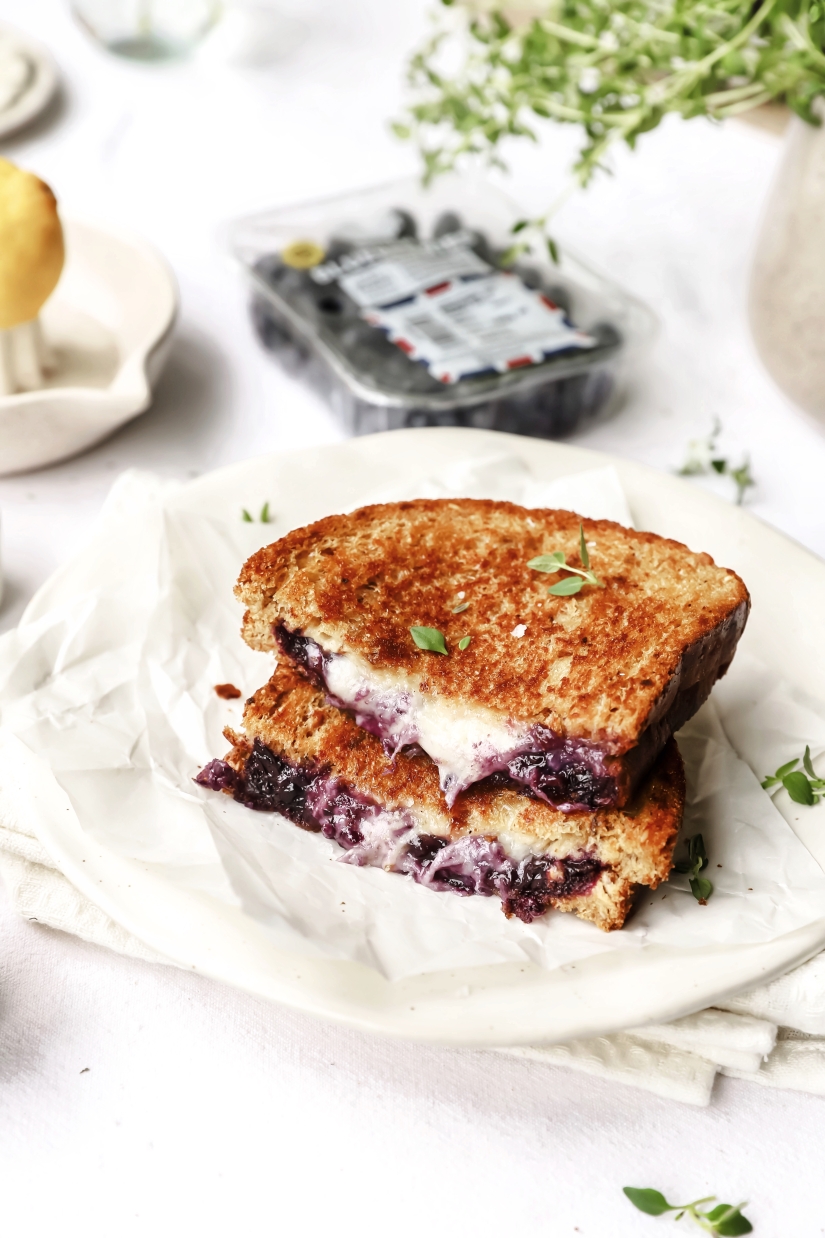
Fans of brie and cranberry look out, blueberry and cheese is the new toastie trend we're loving.
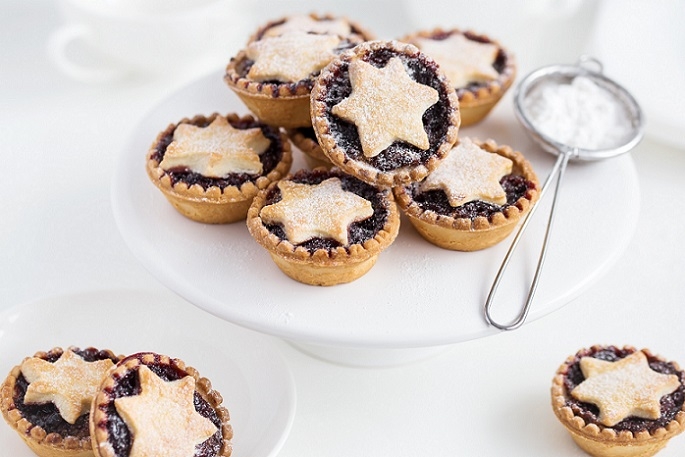
Simple swaps to help you stay on track




